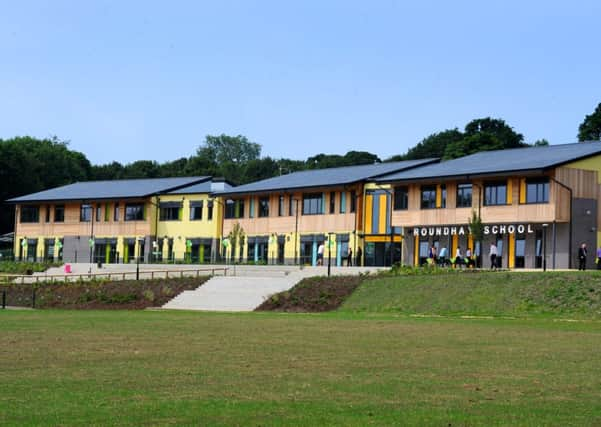Exclusive: Record numbers lie to get children into the best schools


Some of the biggest councils in the region have witnessed a rise in the number of investigations it has been forced to carry out into fraudulent applications for secondary and primary pupils in the past two years, The Yorkshire Post can reveal.
The trend is thought to have been fuelled by an unprecedented surge in demand for school places, causing many families to miss out on their first choices. A total of 11,768 applicants in Yorkshire did not get their first choice of either primary or secondary for the current school year and 2,800 applicants in Yorkshire were offered primaries or secondaries they did not choose.
Advertisement
Hide AdAdvertisement
Hide AdFormer education secretary David Blunkett today calls for improvement a “dramatic focus on underperformance” to combat the problem.
The MP for Sheffield Brightside and Hillsborough told The Yorkshire Post: “This has been a long-standing issue which goes back to the days when parents engineered to get their children into primary schools with the best links to grammar schools, under the old system.
“The only way to deal with this other than rooting out fraud is to dramatically improve schools and their attractiveness, wherever they’re located and whatever history there is behind them. In other words, a focus on under-performance.”
In Leeds there have been 37 investigations have been carried out between the start of the school year in 2013 and January this year, with schools in more affluent areas of the city such as Roundhay, Alwoodley and Otley appearing more frequently on the list.
Advertisement
Hide AdAdvertisement
Hide AdThe probes resulted in eight offers of school places being withdrawn after education officers discovered mothers and fathers had lied about living in the catchment areas.
“It is really important that the admissions system is fair for everybody,” said a Leeds Council spokesman.
“Nobody should be allowed to cheat by using a friend or relative’s address, or by putting an address you are not living at near to a popular school. Each year a small number of parents try to get a popular school place this way, taking a place that should have been given to another child.
“The council’s admissions team investigates all instances where a parent is thought to have used a false address in order to gain admission to a school.”
Advertisement
Hide AdAdvertisement
Hide AdMeanwhile in Bradford, six investigations were carried out ahead of the new school year, up by four on the previous year, with two places subsequently withdrawn.
A council spokesman said: “One was dealt with before allocations were made and so it was not necessary to withdraw a place. This case was about the parent stating that they lived in the school’s catchment area but they did not.
“The other case was detected after allocations had been made and resulted in the place being withdrawn. This was for Bradford Girls’ Grammar School and was where the parent stated that the applicant had a sibling in school but it came to light that this was a cousin and resulted in the place being withdrawn.”
Sheffield conducted two fraud investigations for the 2013/2014 school year and five before the beginning of the new school term last September, which uncovered two cases where parents had deliberately misled the local authority over a child’s home address.
Advertisement
Hide AdAdvertisement
Hide AdIn theory, mothers and fathers face prison for committing fraud on their child’s application, yet the Local Government Association said few are prosecuted even when they are found to have cheated the process.
But The Yorkshire Post’s figures could be the tip of the iceberg for a problem which can prove difficult for the stretched education officers of local authorities to detect.
Some rely on individual schools to check all parental information, while other councils conduct random spot checks.
In North Yorkshire, 20 investigations into suspected fraud have taken place over the past two school years primary and secondary schools in Ripon, Harrogate and Skipton, yet only one has resulted in the withdrawal of an application.
A spokeswoman for the LGA said: “It is down to councils to deal with this problem at a local level.”